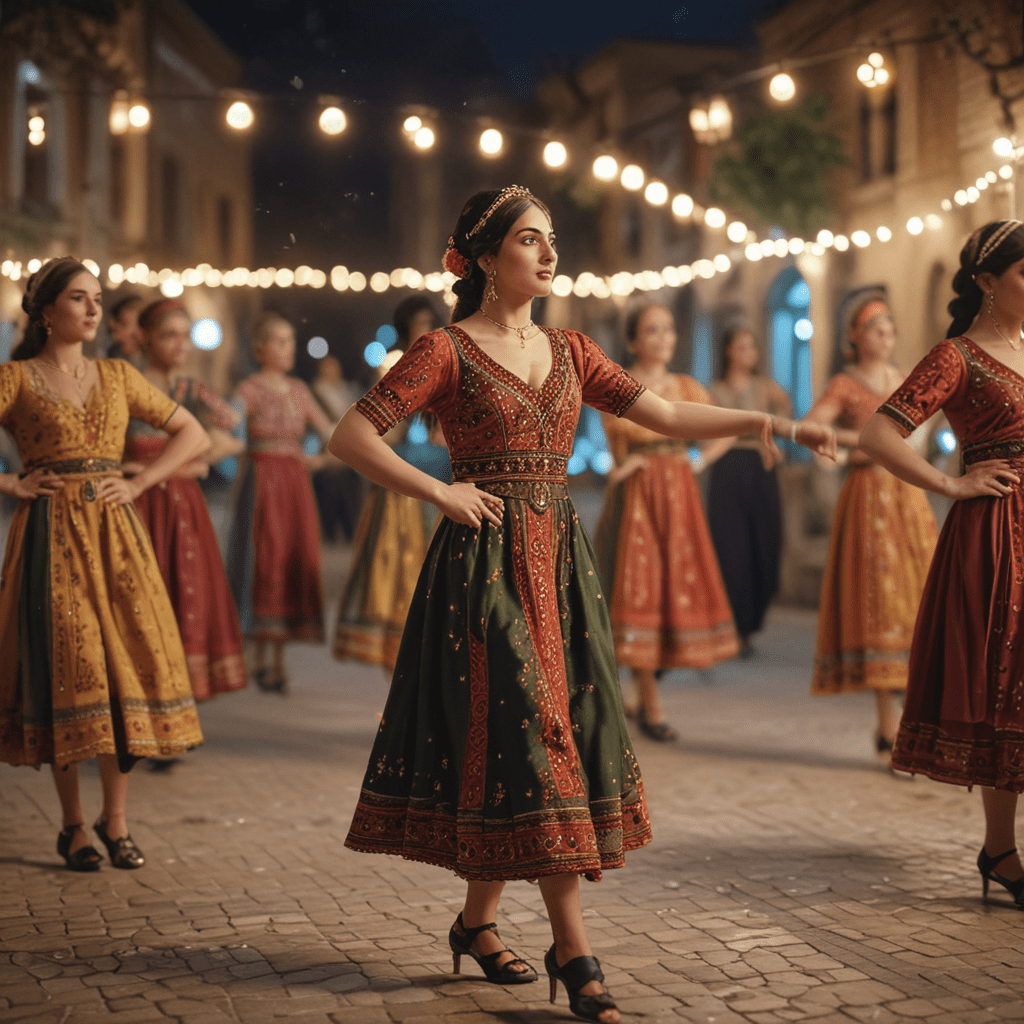Traditional Music and Dance in Azerbaijan
Азербайjani folk music and dance are ingrained in the country's rich cultural tapestry, reflecting its historical crossroads and diverse influences. With ancient origins in religious rituals and shamanistic practices, Azerbaijani music has evolved over centuries, drawing inspiration from Persian, Arabic, and Turkish cultures.
Historical Origins
The roots of Azerbaijani traditional music can be traced back to ancient times, with archaeological evidence suggesting the existence of musical instruments dating back to the Bronze Age. Early musical practices were closely tied to religious rituals and shamanistic beliefs, with instruments like drums and rattles used for ceremonial purposes. Over time, these musical practices began to incorporate influences from neighboring cultures, resulting in a unique and diverse musical landscape.
Music Instruments
Azerbaijani traditional music is characterized by the use of a variety of distinctive instruments, each with its own unique sound and playing technique. The tar, a long-necked lute with a pear-shaped body, is one of the most recognizable Azerbaijani instruments. The kamancha, a bowed string instrument with a goat skin soundboard, produces a haunting and expressive sound. The naghara, a double-headed drum, provides a rhythmic foundation for many traditional pieces. Other notable instruments include the balaban, a woodwind instrument with a double reed, and the gaval, a frame drum.
6. Social Significance
Traditional music and dance play a vital role in Azerbaijani society, holding immense social and cultural significance. These artistic expressions are integral to weddings, festivals, and various social gatherings. They serve as opportunities for community bonding, cultural transmission, and the preservation of traditions and values.
7. Influence on Modern Music
Azerbaijani traditional music has significantly influenced the development of modern Azerbaijani popular music. Contemporary pop and rock artists often incorporate elements of traditional melodies, rhythms, and instrumentation into their compositions. Collaborations between traditional musicians and modern artists have also led to innovative and exciting musical fusions.
8. Preservation and Renewal
Recognizing the importance of safeguarding their cultural heritage, Azerbaijani authorities and cultural organizations have made efforts to preserve and revitalize traditional music and dance forms. These initiatives include establishing music schools, organizing workshops and festivals, and supporting cultural research and documentation projects.
9. Contemporary Dance
In recent years, a thriving contemporary dance scene has emerged in Azerbaijan, blending traditional and modern elements. Choreographers draw inspiration from Mugham melodies, traditional dance movements, and Azerbaijani folklore to create captivating and innovative dance performances that showcase the country's rich cultural heritage in a contemporary context.
10. Legacy and Impact
Azerbaijani traditional music and dance have earned international recognition and are celebrated as UNESCO Intangible Cultural Heritage. They represent the country's unique cultural identity and creativity, fostering a sense of national pride and serving as a symbol of Azerbaijan's rich historical and cultural tapestry.
Frequently Asked Questions
Q: What are some of the most popular traditional dances in Azerbaijan?
A: Yalli, Tenzere, and Kochari are some of the most widespread traditional dances in Azerbaijan, each with its distinct steps and formations.
Q: Is traditional music still popular in Azerbaijan today?
A: Yes, traditional music remains an essential part of Azerbaijani culture and is widely enjoyed at festivals, weddings, and other social events.
Q: How can I learn more about Azerbaijani traditional music and dance?
A: Attending live performances, visiting music schools, and listening to recordings are great ways to experience and learn more about Azerbaijani traditional music and dance.



